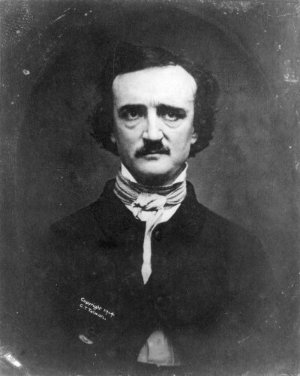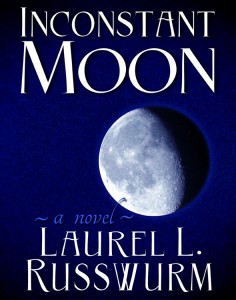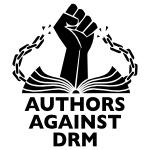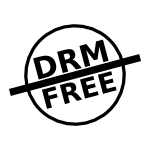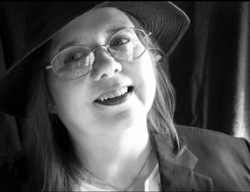
Laurel L. Russwurm, self publishing author
I don’t have an editor, I have beta readers.
I make the ultimate decisions.
Although I can seek out assistance from others, what ends up on the page is entirely up to me.
It is totally my responsibility. If I get something wrong it is my mistake.
I cannot be overruled by an editor. Or worse, a marketer.
Which is not to say I don’t listen. Because I am independent, feedback is especially important to me.
I am not simply free-lance, but independent. I’ve chosen to self-publish my debut novel through digital book distribution and Print On Demand publishing, using services like Kobo, Amazon and CreateSpace.
Even worse, the impetus for writing my debut novel was NaNoWriMo.
Some will take these things as signs of amateurism. They still think it takes a mainstream publishing house to produce a good book.
They used to call self publishing the “vanity press.”
Back in the day, rich people could commission books about themselves, or publish their own novels. They didn’t have to be good, they just had to be paid for. Enough money meant you didn’t need to convince a publisher to publish your book or biography. It was possible to publish purely to satisfy your own vanity. So naturally the perception was that self published works had to be awful.
“Accepted wisdom” was that only writers who couldn’t get real publishers to publish their work would ever consider self publishing.
Terrible writers
The thinking is that only terrible writers would self publish.
Writers like Edgar Allan Poe, whose anonymous self published first book Tamerlane and Other Poems, is “one of the rarest first editions in American literature.”
The assumption that only bad writers would self publish is probably why Poe’s venture into self publishing doesn’t have his name on it. Had it been common knowledge, he might never have gotten a “real” book deal. Edgar Allan Poe was a breakout writer because he self published. Suffice it to say, if you manage to find a copy of the first edition of this little gem on your attic, you’ll be laughing all the way to the bank since its most recent auction price was $662,500.00
Or terrible writers like J.K.Rowling.
Over the course of the 20th Century, the power balance between publishers and writers widened dramatically, with the power consolidated firmly in the hands of the publisher, except in the rare case of the very successful superstar writers. It doesn’t get more “superstar” than J.K.Rowling. Although the Harry Potter books and movies have made J.K.Rowling richer than the Queen of England, isn’t it interesting she launched her Pottermore website, which is careful to exclude both the movie and publishing corporations?
To foster a “reading” environment.
Of course, J.K.Rowling is also taking on the new role of self publisher, as this will be the exclusive digital book outlet for Harry Potter eBooks and audio books. Certainly she has a bit of an edge over most of us, but J.K.Rowling has opted for self publishing. After all, if Ms. Rowling can’t get a good enough deal from a mainstream publisher, what chance do the rest of us have?
my choice
Even before Pottermore, it never crossed my mind to even query a publisher.
When I was young, the only choice for creators was jumping on the appropriate industry treadmills. I wanted to write episodic television, and the only way to do that was to work for hire, effectively giving up my rights. I was willing to do that ~ then ~ because I was young, and because I was learning. Lessons learned as a working story editor were invaluable, and I don’t regret that at all.
But today the world is a very different place.
When it was time for me to write a novel, rather than jumping through hoops to acquire an inequitable publishing deal by giving up control or sharing title to my work, I chose instead to ‘self publish’. Regardless of what the publishing industry would have us believe, ‘self publish’ is no more an oxymoron than ‘self portrait’.
I am not willing to rely on the lowliest member of the editorial team to convince her superiors to do their best for my book. Even with my professional writing background, that is what a first time writer is likely to get from any mainstream publisher these days. Judging from the lack of quality in the two mainstream books I’ve just read — books that should have been really good based on the writer’s track record, but were mediocre or embarrassing — I have to wonder whether even established name writers are being well served by their mainstream publishing houses.
The mainstream publishing houses are themselves moving into Print on Demand (POD) and eBooks. But they are not passing their savings along to their writers by offering anything like a reasonable division of spoils.
Of course, main stream publishers still don’t get it. They want total control. After a century of insisting writers should tighten their belts, these publishers are curiously resistant to tightening their own. After all, they can’t pay authors a reasonable split: their overheads are enormous.
I find it terribly ironic that even Amazon doesn’t get it. I thought it would be good to enter their “Breakthrough Novel” promotion until I looked at it and saw that the “prize” is a publishing contract.
But I don’t *want* a publishing contract.
If I wanted a publishing contract, I wouldn’t be self publishing.
Self Publishing is real publishing.
Just like books from the mainstream publishing houses, self published books are not equal. Some are good and some are not. A powerful reason for my online serialization of Inconstant Moon is because I believe it is good.
But I’d rather publish my books myself and trust to readers to decide. And yes, I know it is brutally hard work, work that is taking me away from writing. But once I’ve got the self publishing aspects learned, the next one will be easier. If people like my work, perhaps they will choose to buy copies from Libreleft Books, or any of the distribution channels available through my eStore.
I don’t need to be as rich as J.K. Rowling, I just need to write, and to be able to make my work available. Perhaps I’ll be able to make a living at this. If not, I will do it anyway, just less of it.
Because I’m a writer.
The one thing that I know, is that today’s technology means that I can.
Edgar Allan Poe portrait, a daguerreotype of Edgar Allan Poe by W.S. Hartshorn in 1848, was shared by The Dark Clown
“Laurel L. Russwurm, self publishing author” by Lothlaurien

